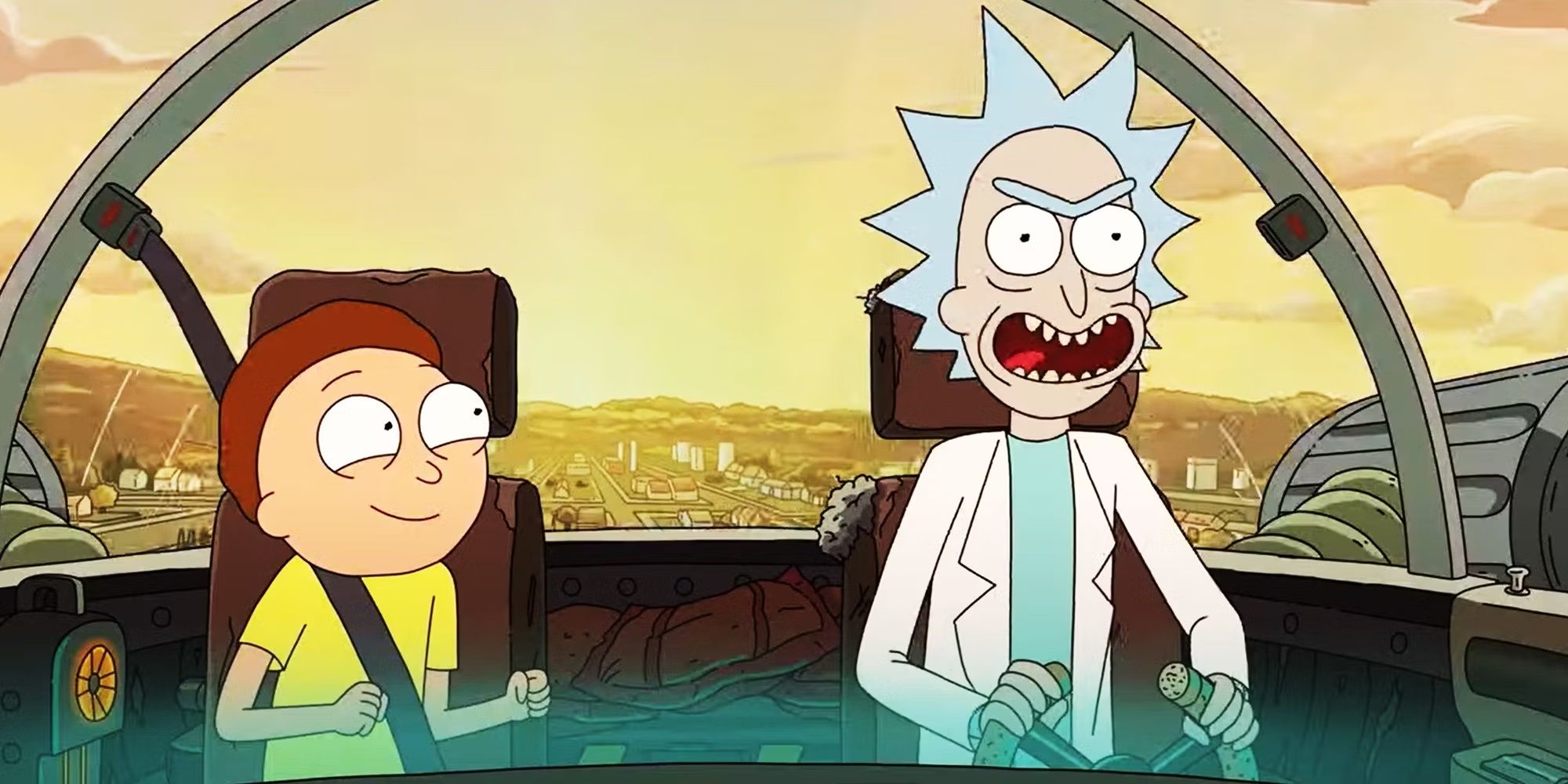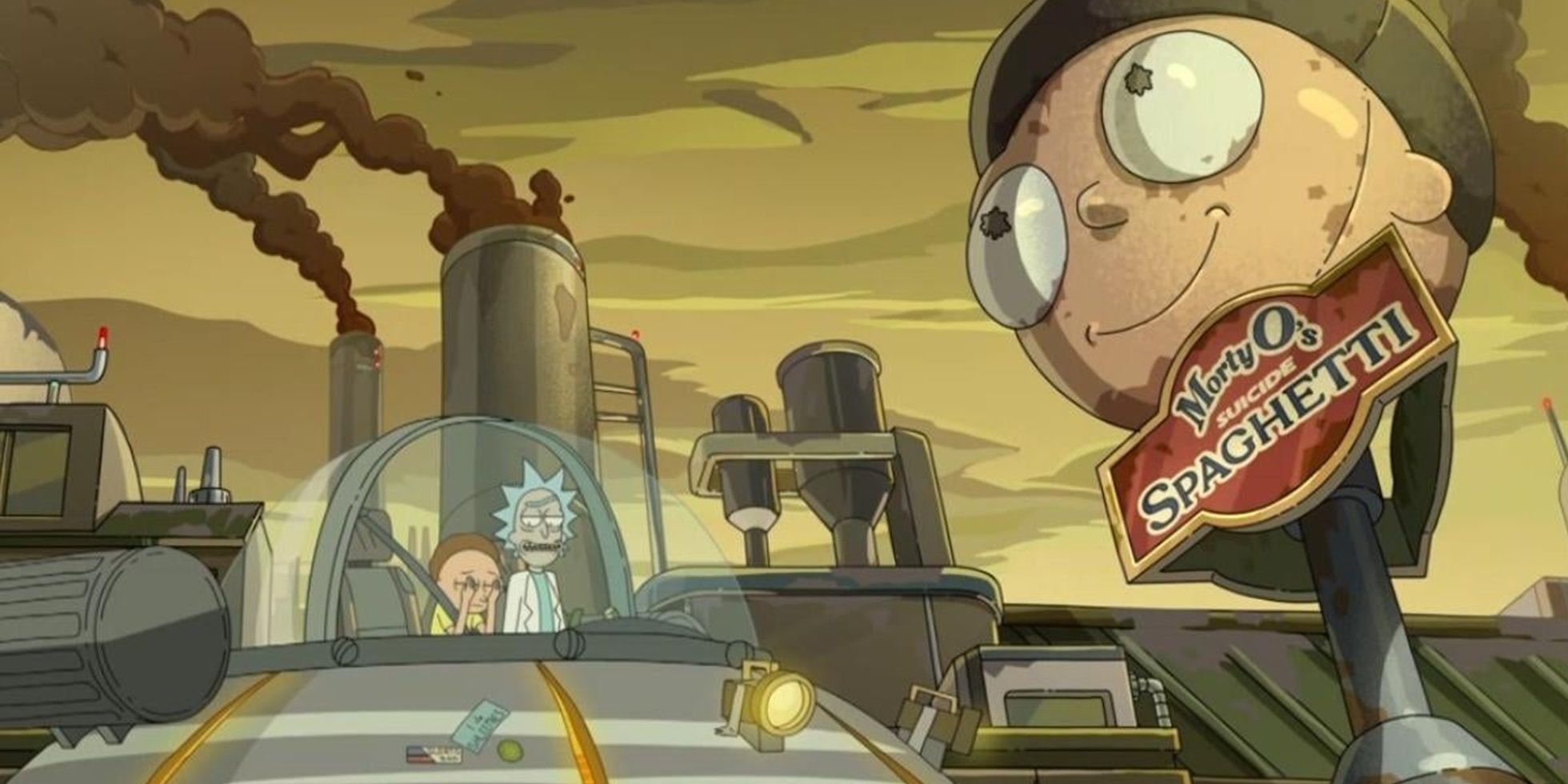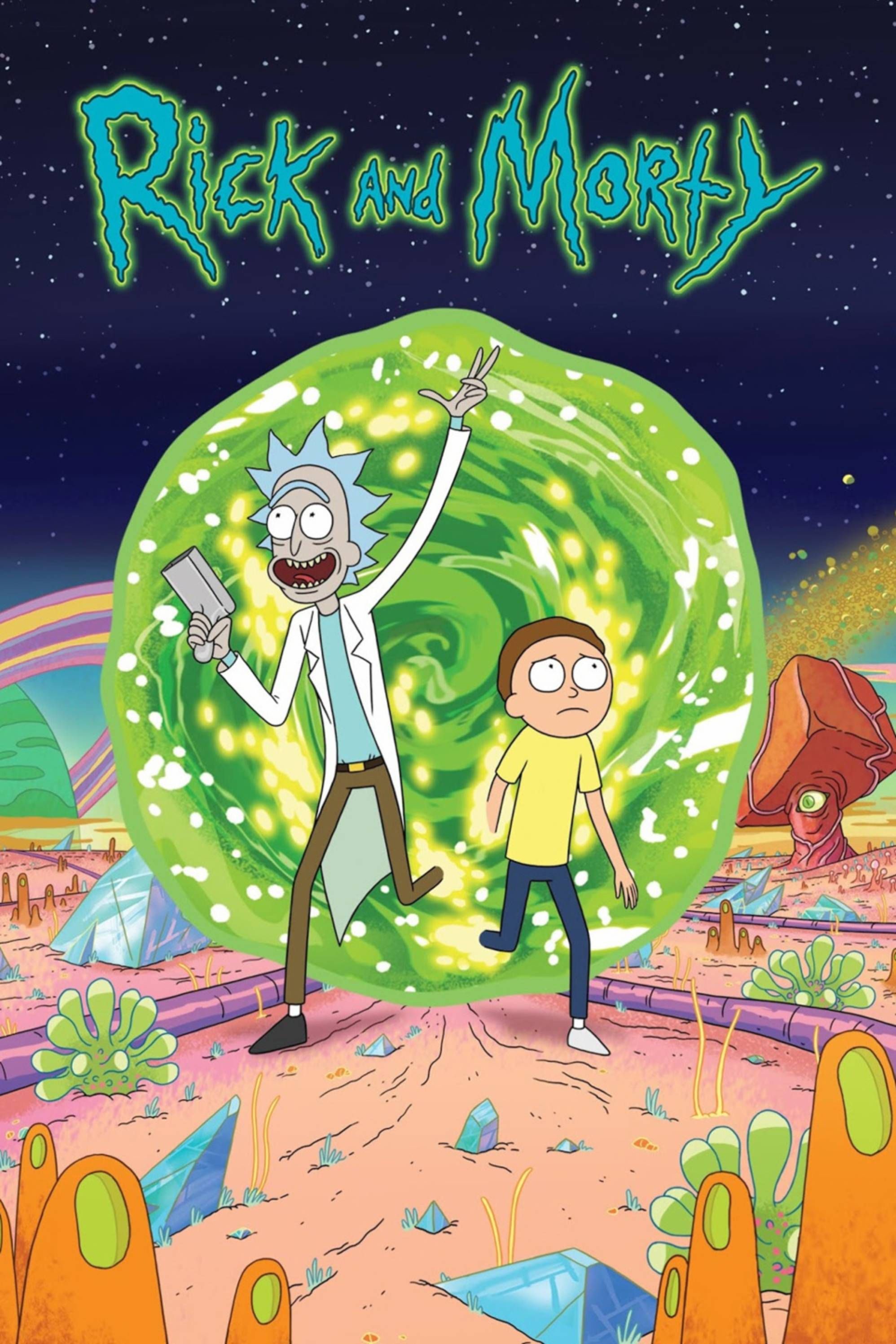
Review of Rick and Morty Season 7 Episode 4

Rick and Morty Season 7 Episode 4 Review: Morty takes center stage in this darkly humorous and thought-provoking episode, brilliantly blending themes of suicide and spaghetti A must-watch for fans craving a captivating and introspective twist
Article Key Points
"That's Amorte" is the best episode of season 7 so far, reuniting Rick and Morty in a dark exploration of the morality of the meat industry.
The episode explores a distinctive concept and presents two alternatives to the moral predicament of animal product consumption. It cleverly mocks capitalism and corporate greed, shedding light on how they impede ethical choices. If the remaining episodes uphold this standard, it could salvage a lackluster beginning.
Rick and Morty reunite in the best episode of season 7 so far, titled "That's Amorte." The episode begins with Rick introducing Morty to a bizarre world where suicide creates spaghetti. The duo then tries to find an ethical way to obtain the spaghetti without exploiting the act of suicide. This outlandish concept serves as a means to explore the morality of the meat industry. Unlike other episodes, "That's Amorte" tackles a dark subject matter and includes a trigger warning for its frank depiction and discussion of suicide. While it may not be the greatest episode of Rick and Morty, it is a significant improvement over previous season 7 installments. If the rest of the season can maintain this level of quality, it has the potential to redeem itself from being the show's worst year.
The episode sets up perfectly with an enticing cold open. The Smith family gathers for their beloved “Spaghetti Thursday” tradition, enjoying generous servings of Rick’s famous spaghetti. However, things take a dark and twisted turn as Morty enters the garage in search of the secret ingredient and discovers Rick scooping spaghetti out of a decaying corpse. This unexpected and hilariously shocking twist aligns seamlessly with the show's distinctive style while effectively establishing the story from the very beginning.
With a captivating and distinctive premise, "That's Amorte" delves into the realm of absurdism to explore the ethical implications of consuming living beings for sustenance. Reminiscent of the popular Futurama episode "The Problem with Popplers," where characters unknowingly devour an otherworldly lifeform, Rick and Morty discover that obtaining delectable animal products without causing harm is an ethical quandary. This episode not only raises awareness about the issue, but it also presents two contrasting solutions: one that requires contemplating the entire life of the animal, making the food unpalatable, and another that embraces a morbidly nihilistic approach by disregarding the source of the food and focusing solely on its flavors.
Beyond its scrutiny of meat consumption, "That's Amorte" serves as a satirical critique of capitalism and corporate greed. Upon realizing the lucrative potential of offering the innards of her suicidal constituents to eight billion people, the president of an alien planet eagerly capitalizes on the opportunity. The episode adeptly highlights how capitalism stands as a major roadblock to ethical consumption, as companies would cease slaughtering animals and selling their meat if profitability wasn't consistently maintained. This astute understanding forms a core theme within the episode.
The previous season 7 episodes of Rick and Morty faced a major issue in that they reused concepts from past episodes, resulting in a significantly diminished impact. However, "That's Amorte" breaks away from this trend by introducing a wholly new premise to the series. While there are a couple of familiar ideas present, such as the machine that broadcasts Fred Bunks' life and the machine that imparts true happiness into Simple Rick's Wafers, writer Heather Anne Campbell ingeniously provides a fresh context that revitalizes the episode. The montage depicting Fred's life, accompanied by a beautiful cover version of "Wonderwall," exemplifies the classic Rick and Morty style: a seemingly comical visual gag that unexpectedly evolves into a profound contemplation on life, evoking deep emotion.
After sidelining Morty for three episodes, Rick and Morty finally reunite in "That's Amorte." This episode marks the first time Ian Cardoni's Rick and Harry Belden's Morty truly sound natural together. Previously, there were moments where the recast drew attention due to slightly off intonations. However, in "That's Amorte," they have settled comfortably into their roles, seamlessly replacing fired co-creator Justin Roiland's voice work.
Undoubtedly, "That's Amorte" stands out as the best episode of season 7 thus far, reminiscent of the show's classic style. It successfully brings Rick and Morty back together, cleverly satirizes a wealthy target, thoroughly explores all sides of its chosen subject, and even provides answers to some of the questions it raises. If the remaining episodes of season 7 can match the greatness of "That's Amorte," there is still hope for the series.
Rick and Morty embark on a quest to find a morally responsible approach to indulge in animal-based food items. Their mission leads them to an extraordinary planet where individuals who end their own lives undergo a remarkable transformation into delectable spaghetti bolognese.
Editor's P/S
"That's Amorte", the fourth episode of Rick and Morty's seventh season, is a darkly humorous and thought-provoking exploration of the morality of the meat industry. The episode presents two contrasting solutions to the ethical quandary of animal product consumption, one that requires contemplating the entire life of the animal, making the food unpalatable, and another that embraces a morbidly nihilistic approach by disregarding the source of the food and focusing solely on its flavors.
The episode also serves as a satirical critique of capitalism and corporate greed, highlighting how these forces stand as major roadblocks to ethical consumption. Overall, "That's Amorte" is a significant improvement over previous season 7 installments and a must-watch for fans craving a captivating and introspective twist.









